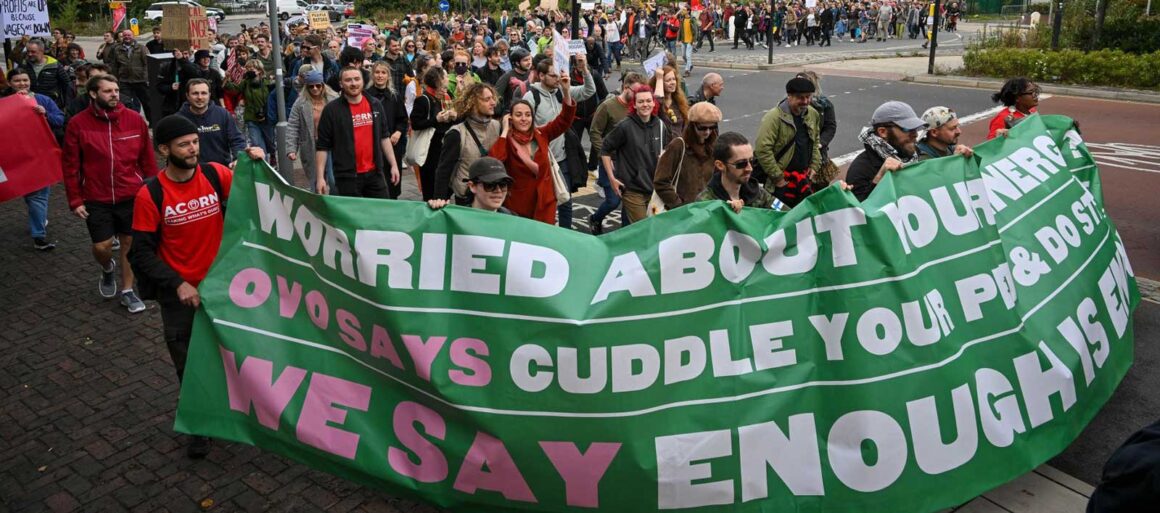

TENS OF thousands joined nationwide protests on 1 October, the first day of action called by Enough is Enough, a new campaign founded to fight the cost of living crisis.
The growing cost of living crisis and increasing public alarm at what it will mean pose the urgent need for a united front between all those affected by inflation.
It needs to bring together union members and those who want to join a fighting union; the unemployed and underemployed; pensioners, students and benefit claimants. Inflation is slashing all our incomes. We all need to fight back together.
But while there is a strong urge for such unity at grass roots level, as can be seen on the sizeable numbers expressing their solidarity on visits to the picket lines and the thousand-strong rallies organised by Enough Is Enough, there is less evidence of concord from some of the union leaders. Indeed it seems that the bad old habit of setting up separate branded campaigns by various parties and unions is still in operation.
Enough is Enough and Don’t Pay are the new campaigns which have hit the headlines. In addition Unite intends to launch Unite for a Workers’ Economy and smaller campaigns such as Cost of Living Action have been launched. The older ‘fronts’, the People’s Assembly and People before Profit, are also competing in a crowded marketplace. In this case we believe mergers and rationalisations are in order, but the initiative will probably have to come from below.
Enough is Enough
The new campaign has drawn in the Renters Union, Acorn and Right to Food. Mick Lynch of the RMT, Zara Sultana MP and Andy Burnham, Mayor of Greater Manchester, have spoken on its platforms. Its strength is that it aims to combine the trade union struggle with community action. This initiative is certainly to be applauded
In less than a month the campaign has garnered more than 500,000 sign-ups and has held large rallies up and down the country, with militant speeches drawing a warm reception from the thousands gathered.
However, so far follow-up has been slow. The initiative should not be left to EiE ‘organisers’ appointed from above. People have signed up to the campaign to get organised—not wait for occasional summons to rallies. We should call meetings and demand EiE use its database to get people along.
Groups need to be organised on the basis of metropolitan boroughs, towns and cities with deep roots in workplaces and neighbourhoods. Indeed activists are already setting up local strike solidarity groups—we should encourage them to affiliate to EiE or become its local branches.
The campaign’s five demands are: a real pay rise; slash energy bills; end food poverty; decent homes for all; tax the rich. What these mean in practice and how we are going to fight for them needs to be discussed at local level. Should they be added to—nationalise the energy firms, for example? What action could we take –demos, flash mob occupations, unofficial walkouts?
Activist networks, trades councils, tenants associations, Labour lefts and campaign groups, along with union branches, could form the base units of EiE, which can then branch out into the estates and workplaces. Once they are established, a national conference of such groups could then elaborate a strategy to defend the whole working class from this crisis.